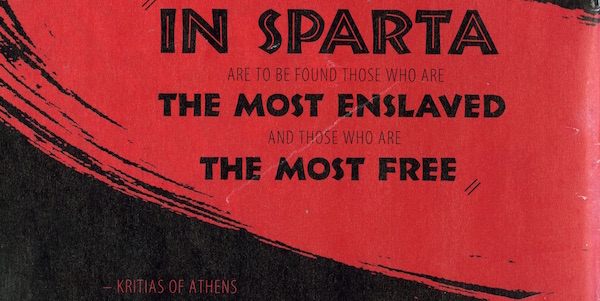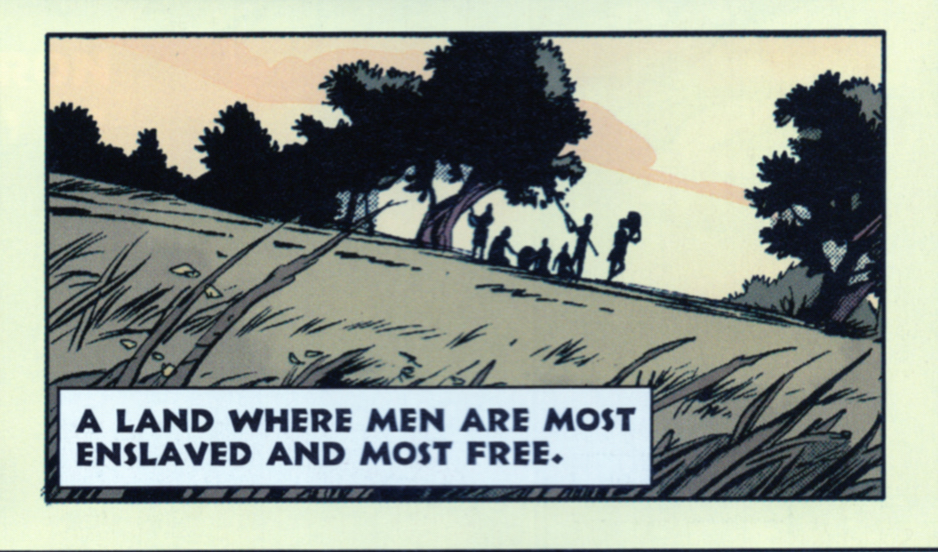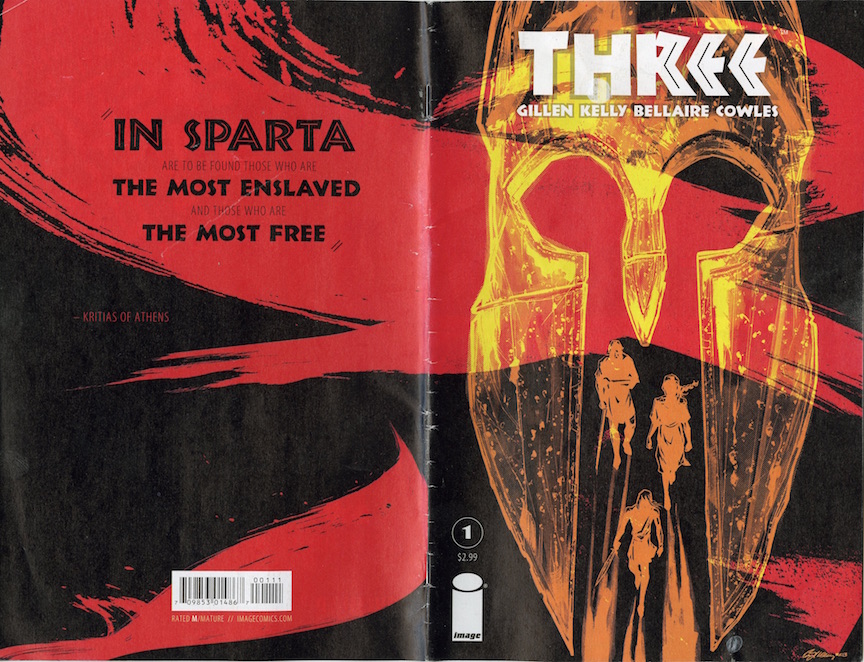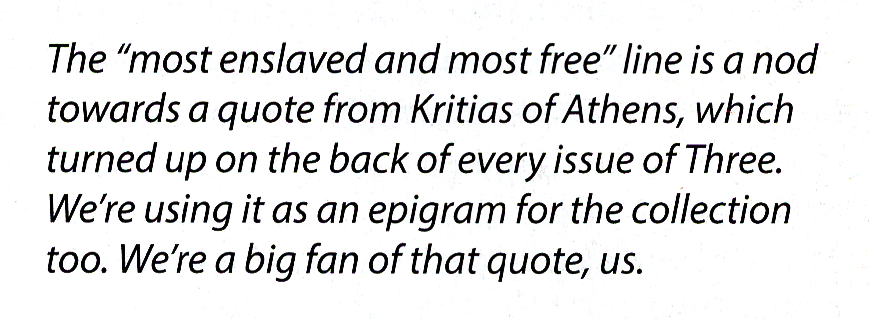
September 1, 2020, by Lynn Fotheringham
Most enslaved and most free
(Διαβάστε στα Ελληνικά.) (Updated 25/09/20.)
CONTENT: ANCIENT SLAVERY
Three, by Kieron Gillen & Ryan Kelly; chapter/issue 1, cont. [For an introduction to Three, see this post.]
In this final post on ch./issue 1 (at least for the moment), I turn to the earliest panel of all those we’ve looked at so far. This is the closing statement in the basic introduction of the Helots, summing up the nature of Sparta/Lakonia:

The same point is also used as an epigram to the entire series. It appeared on the back cover of all five individual issues of the original publication in English, and appears as a frontispiece to the collection in both languages.

THREE issue 1, covers
As is acknowledged in the epigram version, this description of Sparta is attributed to an Athenian named Kritias, who was an aristocrat, an anti-democrat, and a big fan of Sparta. He lived in the late fifth century B.C.E.; he was an associate of Socrates, a cousin of Plato, and he wrote poetry, drama and philosophy himself – none of which has survived. We know a fair amount about his role in history (which I won’t go into in any more detail here), but we only know his writings through ‘fragments’, i.e. references, quotations or paraphrases in later authors.
This particular description probably comes from his book, Politeia Lakedaimoniōn (Constitution of the Spartans). It is quoted (or paraphrased) in a speech by the fourth-century C.E. orator, Libanius. This is difficult to find. The passage is also known as ‘Kritias fragment 37 DK’, i.e. it is numbered 37 in the collection of fragments from early philosophical works, made by a scholar named Hermann Diels and revised by another scholar named Walther Kranz (6th edition, 1952; the link above is to a scan of the 9th edition, volume 2).
The passage is from Libanius 25.63; the speech is entitled ‘On Slavery’, so a reference to the Spartans’ relationship with the Helots is topical:
… καὶ περὶ ὧν Κριτίας φησίν, ὡς μάλιστα δοῦλοί τε ἐν Λακεδαίμονι καὶ ἐλεύθεροι.
|
… and about them [= the Helots and the Spartans] Kritias says that in Lakedaimon [= Lakonia] are the most slavish/enslaved men and the most free.
|
Kritias’ clever comment provides a neat reminder that the achievements of Spartan society depended on the exploitation of an unfree class by the free – which is in fact true of all ancient Greek society, though the details of the relationship between free and unfree varied from city to city.
I’ll close this post with Kieron’s note on the panel:

THREE, historical footnote
NOTE: I may refer to/quote comments on this post either in later blog-posts or in a research publication. More information about my audience-research, including a Privacy Notice and ways of getting hold of the book.
Extracts from Three © 2013 Kieron Gillen & Ryan Kelly. Used with permission.
No comments yet, fill out a comment to be the first

Leave a Reply